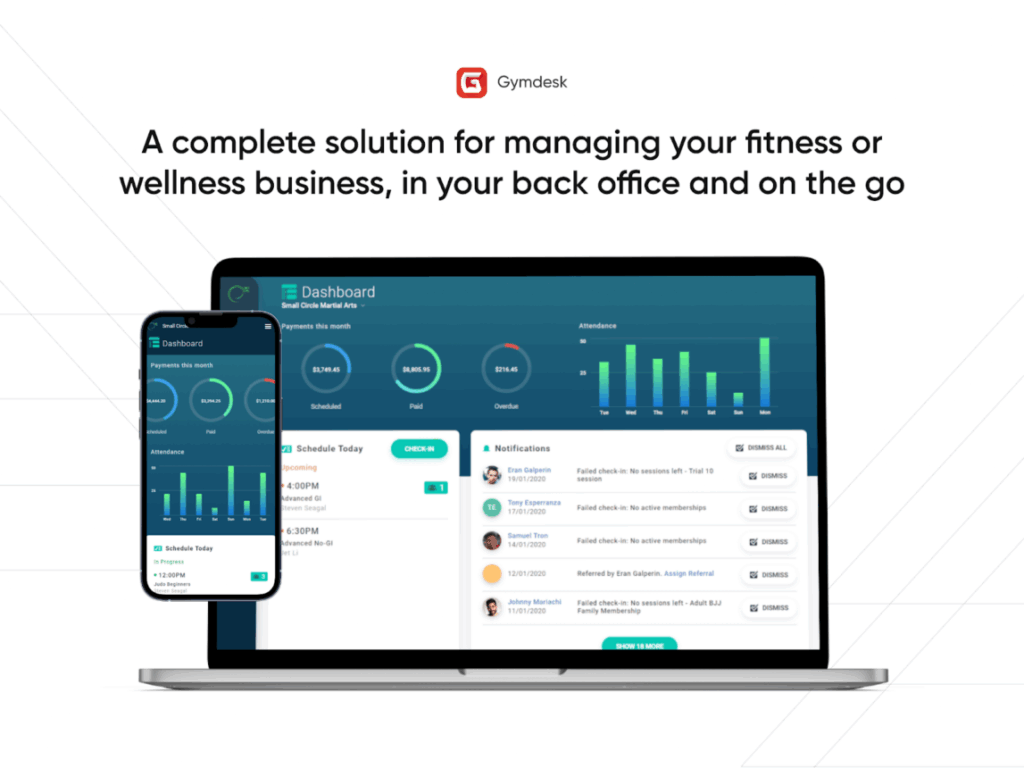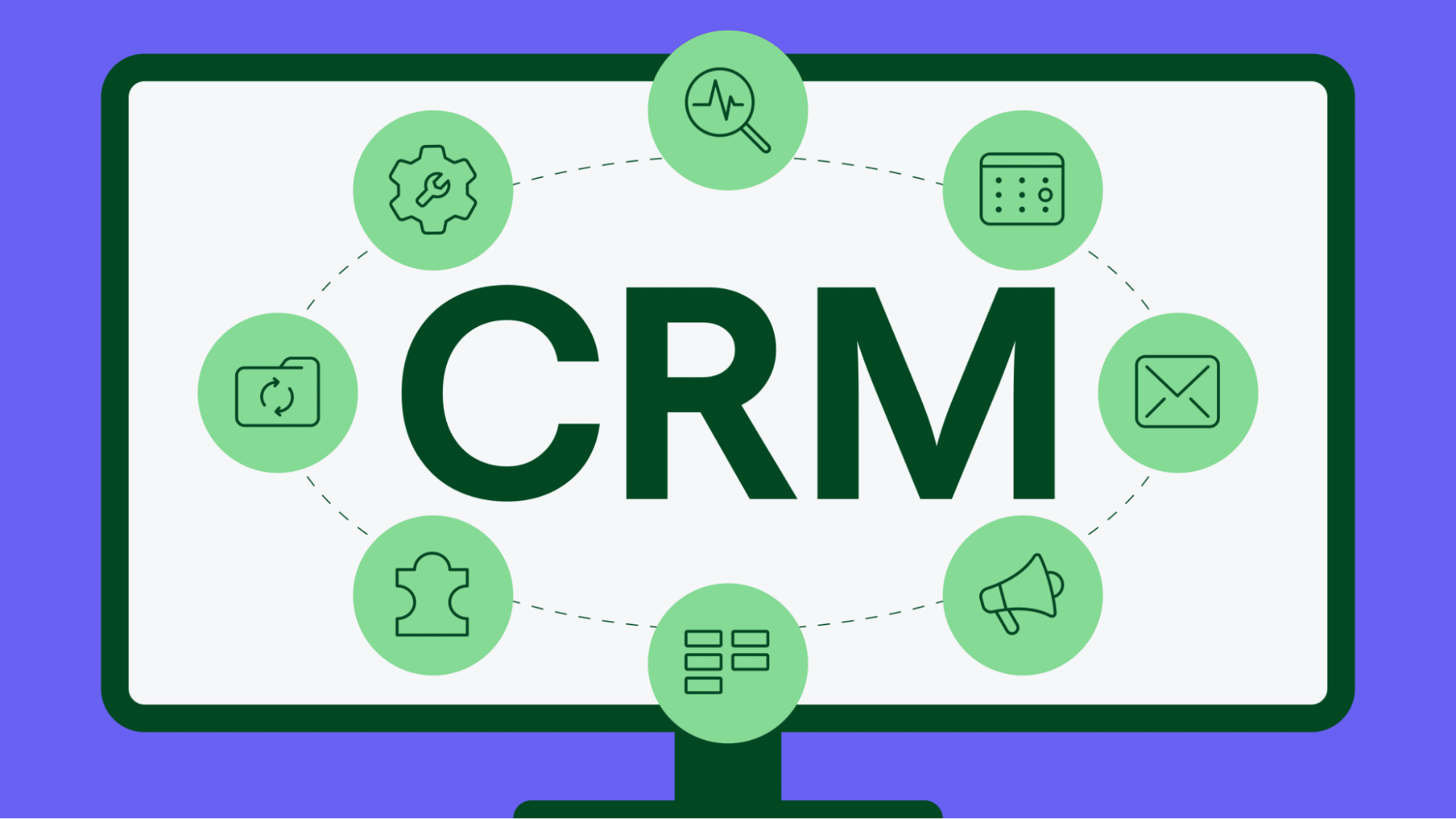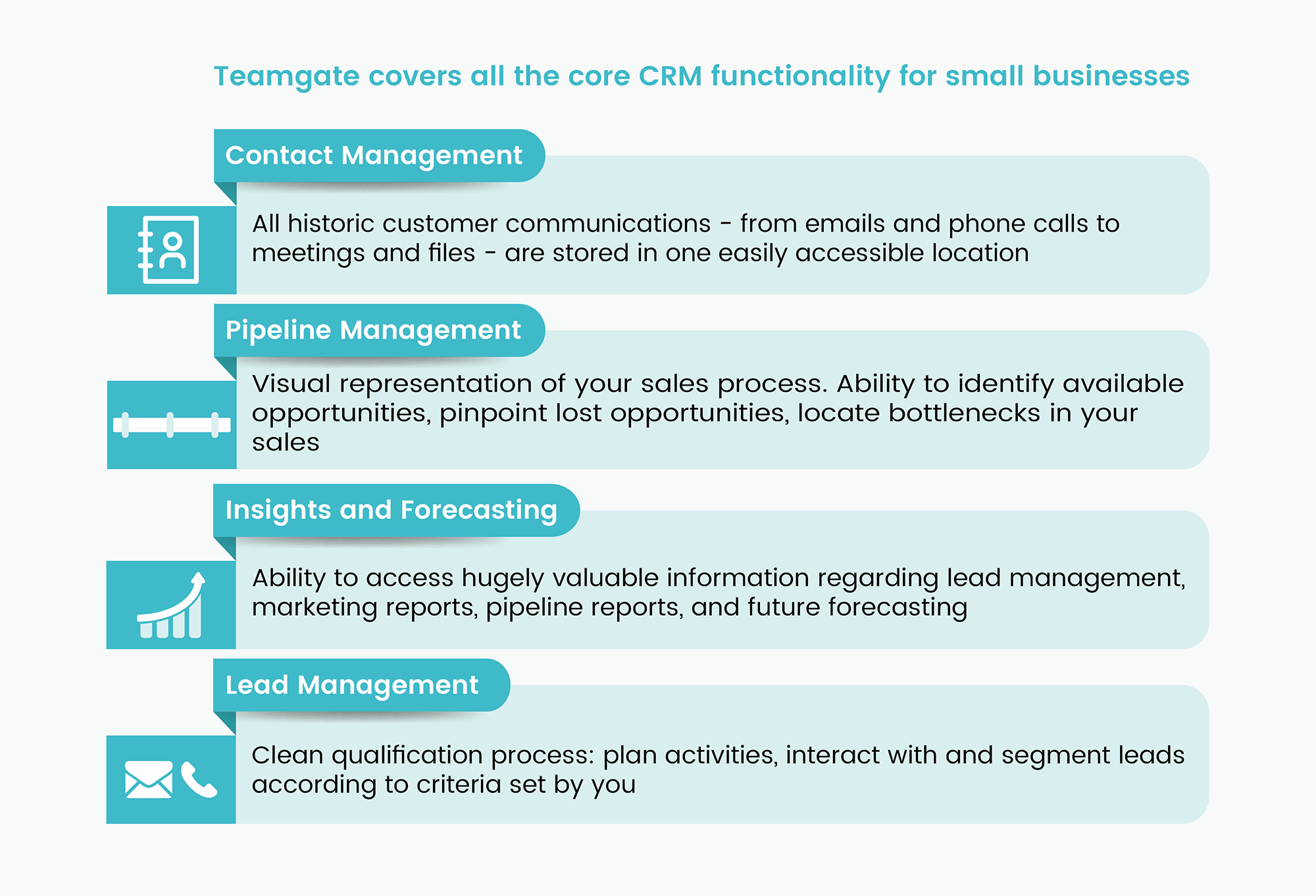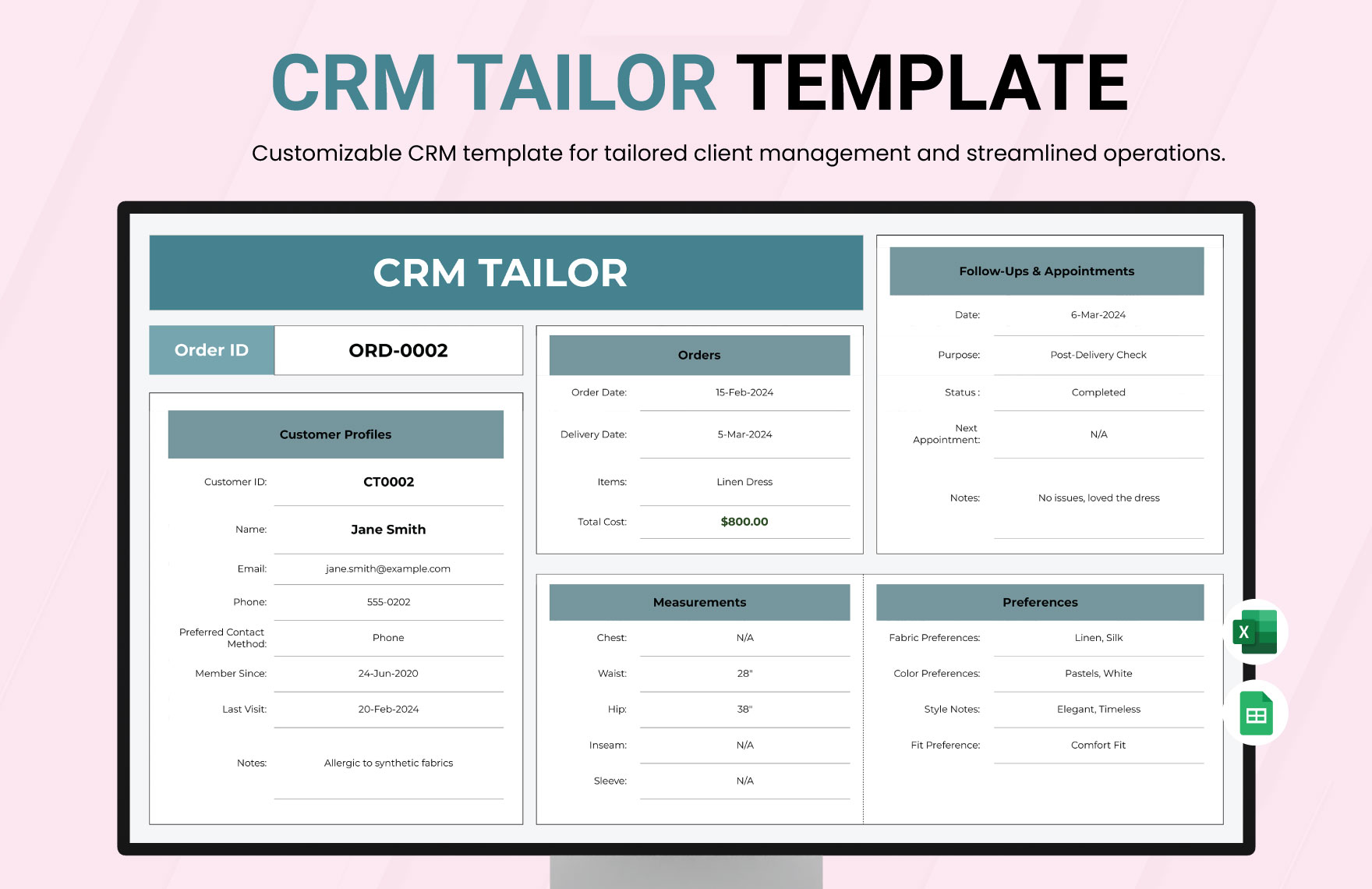
Introduction: Why Your Small Gym Needs a CRM
Running a small gym is a labor of love. You pour your heart and soul into creating a space where people can improve their health, build community, and achieve their fitness goals. But let’s be honest, managing the day-to-day operations can be a real headache. From scheduling classes and tracking memberships to communicating with clients and processing payments, it’s a lot to juggle. That’s where a Customer Relationship Management (CRM) system comes in. Think of it as your gym’s central nervous system, connecting all the vital functions and streamlining your operations.
In the past, CRMs were seen as tools for large corporations with complex sales cycles. However, the landscape has changed dramatically. Today, there are numerous CRM solutions specifically designed for small businesses, including gyms. These systems are affordable, user-friendly, and packed with features that can significantly improve your gym’s efficiency and profitability. This comprehensive guide will explore the best CRM options for small gyms, helping you choose the perfect solution to take your business to the next level.
What is a CRM and Why Does Your Gym Need One?
Before we dive into specific CRM systems, let’s clarify what a CRM is and why it’s essential for your small gym. A CRM is essentially a software solution that helps you manage and nurture your relationships with clients and potential customers. It acts as a central hub for all your customer data, allowing you to track interactions, manage leads, automate marketing efforts, and personalize the customer experience.
Here’s why a CRM is crucial for your gym:
- Improved Customer Management: A CRM provides a centralized database for all your customer information, including contact details, membership status, workout history, payment information, and communication logs. This allows you to quickly access and understand your clients’ needs and preferences.
- Enhanced Communication: CRMs enable you to segment your audience and send targeted communications, such as newsletters, promotional offers, and appointment reminders. This helps you stay connected with your clients and keep them engaged.
- Streamlined Sales Processes: CRMs can automate lead management, track sales progress, and generate reports on your sales performance. This helps you identify and convert leads more effectively.
- Increased Efficiency: By automating tasks such as scheduling, billing, and email marketing, a CRM frees up your time to focus on other important aspects of your business, such as providing excellent customer service and developing new programs.
- Data-Driven Decision Making: CRMs provide valuable data and insights into your business performance, such as membership churn rates, customer acquisition costs, and the effectiveness of your marketing campaigns. This information helps you make informed decisions about your business strategy.
Key Features to Look for in a CRM for Your Small Gym
Not all CRMs are created equal. When choosing a CRM for your small gym, consider the following key features:
- Contact Management: The ability to store and organize customer information, including contact details, membership status, and workout history.
- Lead Management: Tools for capturing, tracking, and nurturing leads, such as lead capture forms, automated follow-up emails, and sales pipelines.
- Scheduling and Booking: A calendar and booking system for managing classes, appointments, and personal training sessions.
- Membership Management: Features for managing memberships, including membership types, billing, renewals, and payment processing.
- Communication Tools: Email marketing, SMS messaging, and in-app messaging capabilities for communicating with clients.
- Reporting and Analytics: Customizable reports and dashboards that provide insights into your gym’s performance, such as membership growth, revenue, and customer churn.
- Automation: Features for automating tasks, such as appointment reminders, welcome emails, and follow-up communications.
- Integration: The ability to integrate with other tools you use, such as payment processors, email marketing platforms, and social media platforms.
- Mobile Accessibility: A mobile app or responsive design that allows you to access your CRM on the go.
- User-Friendliness: An intuitive interface and ease of use are crucial, especially if you or your staff are not tech-savvy.
Top CRM Systems for Small Gyms: A Detailed Comparison
Now, let’s explore some of the best CRM systems for small gyms, comparing their features, pricing, and ease of use. We’ll focus on solutions that are specifically designed for the fitness industry or have features that are particularly well-suited for gym management.
1. Mindbody
Mindbody is a leading CRM and business management software for the fitness industry. It’s a comprehensive platform that offers a wide range of features, including:
- Scheduling and Booking: Robust scheduling and booking capabilities for classes, appointments, and workshops.
- Membership Management: Comprehensive membership management features, including membership types, billing, and automated renewals.
- Online Booking: Online booking for clients, allowing them to schedule classes and appointments through your website or branded app.
- Payment Processing: Integrated payment processing for accepting payments online and in person.
- Marketing Automation: Automated email marketing campaigns and SMS messaging for promoting your gym and engaging with clients.
- Reporting and Analytics: Detailed reporting and analytics to track your gym’s performance.
- Mobile App: A mobile app for clients to book classes, manage their accounts, and stay connected with your gym.
Pros:
- Industry-leading platform with a vast feature set.
- Strong reputation and brand recognition.
- Extensive integrations with other fitness-related tools.
- Excellent customer support.
Cons:
- Can be expensive, especially for small gyms.
- The interface can be overwhelming for new users.
- Some features may be unnecessary for smaller gyms.
Pricing: Mindbody offers various pricing plans based on the number of users and the features you need. Pricing starts at around $129 per month.
Who it’s best for: Established gyms and studios with a large client base that need a comprehensive and feature-rich solution.
2. WellnessLiving
WellnessLiving is another popular CRM and business management software designed specifically for the fitness and wellness industry. It offers a wide range of features, including:
- Scheduling and Booking: User-friendly scheduling and booking system for classes, appointments, and workshops.
- Membership Management: Comprehensive membership management features, including membership types, billing, and automated renewals.
- Online Booking: Online booking for clients, allowing them to schedule classes and appointments through your website or branded app.
- Payment Processing: Integrated payment processing for accepting payments online and in person.
- Marketing Automation: Automated email marketing campaigns, SMS messaging, and push notifications for promoting your gym and engaging with clients.
- Reporting and Analytics: Detailed reporting and analytics to track your gym’s performance.
- Rewards Program: A built-in rewards program to incentivize client engagement and retention.
- Mobile App: A mobile app for clients to book classes, manage their accounts, and stay connected with your gym.
Pros:
- User-friendly interface and easy to learn.
- Competitive pricing.
- Strong marketing automation features.
- Excellent customer support.
Cons:
- The feature set may not be as extensive as Mindbody.
- Some advanced features may require add-ons.
Pricing: WellnessLiving offers various pricing plans based on the number of users and the features you need. Pricing starts at around $99 per month.
Who it’s best for: Small to medium-sized gyms and studios that need a user-friendly and affordable solution with strong marketing automation features.
3. TeamUp
TeamUp is a popular CRM and scheduling software specifically designed for gyms and fitness studios. It provides a streamlined and affordable solution for managing classes, memberships, and client communication. Key features include:
- Class Scheduling: Easy-to-use class scheduling system with drag-and-drop functionality.
- Membership Management: Membership management features including membership types, billing, and automated renewals.
- Online Booking: Online booking for clients through your website or branded app.
- Payment Processing: Integrated payment processing for accepting payments online.
- Communication Tools: Email marketing and SMS messaging for communicating with clients.
- Reporting and Analytics: Basic reporting and analytics to track your gym’s performance.
- Mobile App: A mobile app for clients to book classes and manage their accounts.
Pros:
- Simple and intuitive interface.
- Affordable pricing.
- Excellent customer support.
- Focus on class scheduling makes it ideal for studios.
Cons:
- Fewer features compared to Mindbody or WellnessLiving.
- Limited marketing automation capabilities.
Pricing: TeamUp offers various pricing plans based on the number of active clients. Pricing starts at around $79 per month.
Who it’s best for: Small gyms and studios that prioritize ease of use and affordability, particularly those focused on class-based fitness.
4. Arbox
Arbox is a comprehensive business management platform that caters to fitness studios and gyms. Its feature set includes:
- Scheduling and Booking: A robust scheduling system for classes, appointments, and personal training.
- Membership Management: Comprehensive membership management capabilities, including membership types, billing, and automated renewals.
- Online Booking: Online booking for clients through your website or a dedicated app.
- Payment Processing: Integrated payment processing for seamless transactions.
- Marketing Automation: Tools for email marketing, SMS messaging, and push notifications.
- Client Communication: Built-in communication features for interacting with clients.
- Reporting and Analytics: Detailed reporting to track key performance indicators (KPIs).
- Point of Sale (POS): Integrated POS system for retail sales.
Pros:
- All-in-one platform with a wide range of features.
- User-friendly interface.
- Strong focus on client engagement.
Cons:
- Can be more expensive than some other options.
- May have a steeper learning curve for some users.
Pricing: Arbox offers various pricing plans based on the features and the size of your business. Pricing starts at around $159 per month.
Who it’s best for: Gyms and studios looking for a comprehensive all-in-one solution that provides everything from scheduling and membership management to marketing and point-of-sale features.
5. PushPress
PushPress is a CRM and gym management software designed specifically for CrossFit and functional fitness gyms. It offers a range of features including:
- Class Scheduling: Class scheduling optimized for CrossFit and functional fitness gyms.
- Membership Management: Membership management tools tailored for CrossFit and functional fitness.
- Online Booking: Online booking for clients.
- Payment Processing: Integrated payment processing.
- Workout Tracking: Built-in workout tracking features.
- Reporting and Analytics: Reporting and analytics tools specific to CrossFit gyms.
- Mobile App: A mobile app for clients to book classes, track workouts, and communicate with the gym.
Pros:
- Specifically designed for CrossFit and functional fitness gyms.
- Workout tracking features.
- Strong community features.
Cons:
- May not be as suitable for other types of gyms.
- Feature set is more focused on CrossFit-specific needs.
Pricing: PushPress offers various pricing plans based on the features and the number of clients. Pricing starts at around $129 per month.
Who it’s best for: CrossFit and functional fitness gyms that need a CRM that is tailored to their specific needs.
How to Choose the Right CRM for Your Small Gym
Choosing the right CRM for your small gym can seem daunting, but by following these steps, you can make an informed decision:
- Assess Your Needs: Before you start comparing CRM systems, take the time to assess your gym’s specific needs. What are your biggest pain points? What features are most important to you? What are your goals for the business?
- Define Your Budget: Determine how much you’re willing to spend on a CRM system. Consider the monthly subscription fees, implementation costs, and any other associated expenses.
- Research Your Options: Research different CRM systems and compare their features, pricing, and reviews. Read online reviews and testimonials from other gym owners.
- Request Demos: Request demos from the CRM providers that interest you. This will allow you to see the software in action and determine if it’s a good fit for your gym.
- Consider Integration: Check if the CRM integrates with other tools you use, such as payment processors, email marketing platforms, and social media platforms.
- Evaluate User-Friendliness: Make sure the CRM is easy to use and that your staff can quickly learn how to use it.
- Check Customer Support: Ensure the CRM provider offers excellent customer support and training resources.
- Start with a Free Trial: Many CRM providers offer free trials. Take advantage of these trials to test the software and see if it meets your needs.
Tips for Successfully Implementing a CRM in Your Gym
Once you’ve chosen a CRM system, it’s important to implement it successfully. Here are some tips to help you:
- Plan Your Implementation: Create a detailed plan for implementing your CRM, including timelines, responsibilities, and training materials.
- Train Your Staff: Provide comprehensive training to your staff on how to use the CRM. Make sure they understand all the features and how to use them effectively.
- Import Your Data: Import your existing customer data into the CRM. Ensure the data is accurate and up-to-date.
- Customize the System: Customize the CRM to meet your gym’s specific needs. This may include setting up membership types, creating automated email campaigns, and configuring reports.
- Communicate with Your Clients: Inform your clients about the new CRM system and how it will benefit them.
- Monitor and Evaluate: Monitor your CRM usage and evaluate its effectiveness. Make adjustments as needed.
- Seek Ongoing Support: Don’t hesitate to reach out to the CRM provider for ongoing support and training.
Benefits Beyond the Basics: Maximizing Your CRM Investment
Beyond the core functionalities, a well-implemented CRM can unlock a wealth of benefits for your small gym. Here are some ways to maximize your investment:
- Personalized Client Experiences: Use the data in your CRM to personalize interactions with clients. Send birthday greetings, offer tailored workout recommendations, and provide individualized support. This level of personalization fosters loyalty and strengthens client relationships.
- Targeted Marketing Campaigns: Segment your client base based on interests, membership types, or activity levels. Then, create highly targeted marketing campaigns that resonate with specific groups. This ensures your marketing efforts are more effective and efficient.
- Automated Workflows: Automate repetitive tasks, such as follow-up emails, appointment reminders, and membership renewal notifications. This frees up your staff’s time and reduces the risk of errors.
- Data-Driven Decision Making: Leverage the reporting and analytics features of your CRM to gain valuable insights into your gym’s performance. Identify trends, track key metrics, and make data-driven decisions to improve your business.
- Improved Client Retention: Proactively identify clients who may be at risk of canceling their memberships. Reach out to them with personalized offers and support to encourage them to stay.
- Enhanced Staff Productivity: Provide your staff with the tools and information they need to work more efficiently. This leads to increased productivity and improved morale.
- Integration with Other Tools: Integrate your CRM with other tools you use, such as accounting software, email marketing platforms, and social media channels. This streamlines your operations and provides a more holistic view of your business.
Common Pitfalls to Avoid When Choosing and Using a CRM
While a CRM can be a game-changer for your gym, there are some common pitfalls to avoid:
- Choosing the Wrong System: Selecting a CRM that doesn’t meet your specific needs or is too complex can lead to frustration and wasted resources.
- Not Training Your Staff Properly: Without proper training, your staff won’t be able to use the CRM effectively, and you won’t see the full benefits.
- Not Importing Data Correctly: Inaccurate or incomplete data can lead to poor decision-making and ineffective marketing campaigns.
- Not Customizing the System: Failing to customize the CRM to meet your specific needs can limit its effectiveness.
- Ignoring the Data: Collecting data but not using it to make decisions is a missed opportunity.
- Not Adapting to Change: The needs of your business will evolve over time. Be prepared to adapt your CRM usage as needed.
- Lack of Ongoing Support: Not seeking ongoing support from the CRM provider can hinder your ability to maximize the system’s potential.
Conclusion: Embrace the Power of a CRM for Your Small Gym
In conclusion, a CRM system is an invaluable asset for any small gym looking to improve its operations, enhance its customer relationships, and drive growth. By choosing the right CRM, implementing it successfully, and leveraging its features to the fullest, you can transform your gym into a thriving business.
The options we’ve discussed – Mindbody, WellnessLiving, TeamUp, Arbox, and PushPress – each offer unique strengths and are suited for different types of gyms and business models. Consider your specific needs, budget, and goals when making your decision.
Don’t be afraid to try out different platforms, request demos, and read reviews before settling on the perfect CRM solution for your small gym. The investment in a well-chosen CRM will pay dividends in the form of increased efficiency, improved customer satisfaction, and ultimately, a more successful and sustainable business.
So, take the leap and embrace the power of a CRM. Your small gym – and your clients – will thank you for it.


